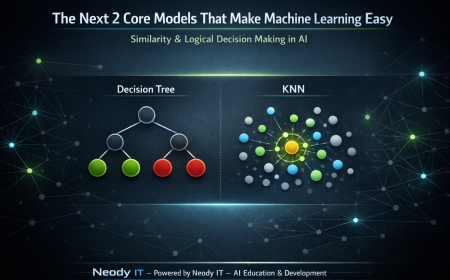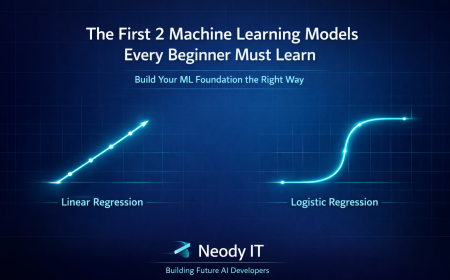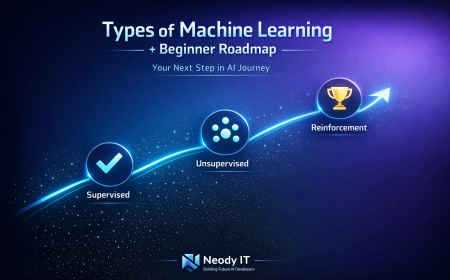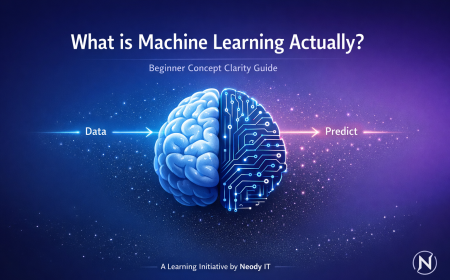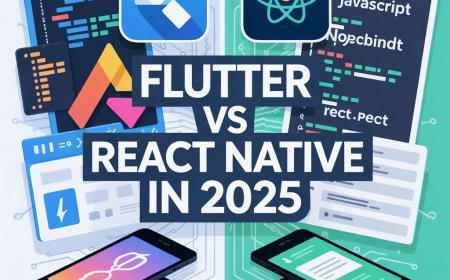The Ethical Implications of AI in Healthcare: Navigating the Future
In this article, we'll explore the key ethical challenges associated with AI in healthcare, and discuss potential strategies to address them.
The Ethical Implications of AI in Healthcare: Navigating the Future
The rapid integration of AI in healthcare has the potential to revolutionize the medical field. From diagnostics and treatment plans to patient management, machine learning and deep learning in healthcare are transforming how care is delivered. However, as these technologies advance, concerns about the ethical implications of AI arise. Healthcare professionals, policymakers, and developers must consider issues like AI bias, accountability, and privacy to ensure ethical deployment and use.
In this article, we'll explore the key ethical challenges associated with AI in healthcare, and discuss potential strategies to address them.
AI in Healthcare: An Overview
AI in healthcare uses advanced algorithms and machine learning models to analyze large datasets and assist in decision-making. Whether it's predicting patient outcomes, analyzing medical images, or optimizing hospital workflows, AI is already proving its value. However, with this immense power comes the responsibility to consider its impact on patients and society.
The ethical challenges surrounding AI ethics primarily revolve around how these systems make decisions, how biases can influence those decisions, and how we ensure transparency and accountability in their use.
Key Ethical Implications of AI in Healthcare
1. AI Bias and Fairness
One of the most critical ethical concerns is AI bias. AI systems learn from historical healthcare data, and if that data contains biases, the AI can perpetuate or even exacerbate those biases. For instance, AI algorithms may produce inaccurate results for minority populations if they are underrepresented in the data. This can lead to biased diagnostics or unequal access to healthcare resources, which raises concerns about healthcare equity.
Mitigating AI bias requires careful attention to data collection and algorithm design. Ensuring diverse and representative data is crucial to avoid biased outcomes.
2. AI Accountability and Governance
Who is responsible when an AI system makes a wrong decision in healthcare? This question raises the issue of AI accountability. If an AI misdiagnoses a patient or recommends an inappropriate treatment, how do we assign responsibility? Is it the developers of the AI, the healthcare provider, or the institution that implemented the system?
To address this, AI governance frameworks need to be established to outline responsibilities and ensure that systems are used ethically. AI regulation may also play a key role in ensuring that healthcare AI systems are subject to safety checks and validations before being widely adopted.
3. AI Transparency and Explainability
Another challenge is ensuring AI transparency. AI algorithms, especially deep learning models, can be highly complex and operate like "black boxes." This means that even healthcare providers may not fully understand how or why an AI system made a particular decision. This lack of explainability can undermine trust in AI systems and make it difficult for patients to accept AI-generated recommendations.
To ensure AI ethics are upheld, developers must focus on creating transparent models that provide clear explanations for their decisions. This AI transparency will enable healthcare professionals and patients to understand and trust AI systems.
4. Privacy Concerns with AI Patient Data
The use of AI patient data raises significant concerns about patient privacy. AI systems need access to large amounts of data to function effectively, which means personal and sensitive health information may be used in training these models. This raises concerns about how this data is collected, stored, and shared.
Ensuring AI privacy means implementing strong data protection measures and encryption standards to safeguard patient information. Furthermore, healthcare providers must be transparent about how AI uses patient data, and patients should have the ability to opt-in or opt-out of AI-assisted care.
5. AI in Decision-Making
AI systems are increasingly being used for AI decision-making in critical healthcare settings. From suggesting treatment plans to predicting disease outcomes, AI is becoming a key player in shaping medical decisions. However, while AI can assist in decision-making, it should not replace the judgment of trained healthcare professionals.
The ethical use of AI in decision-making requires that it be seen as a tool to support, rather than replace, human judgment. Physicians and medical practitioners must remain at the center of care, with AI playing a supportive role.
Addressing Ethical Challenges: Moving Forward
To ensure that AI in healthcare is used ethically and responsibly, several strategies must be adopted:
-
AI Bias Mitigation: Invest in research and practices that minimize bias in data collection and algorithm development. Use diverse datasets to ensure AI systems work equally well for all populations.
-
AI Governance and Regulation: Establish clear guidelines for the development and deployment of AI in healthcare. This includes regulatory frameworks that ensure safety, accountability, and transparency.
-
Transparency and Accountability: Develop AI systems that can explain their decisions in a way that healthcare professionals and patients can understand. Ensure that responsibility for AI outcomes is clearly defined.
-
Protecting AI Patient Data: Implement strict data privacy regulations and ensure that patients are informed about how their data is being used. Security measures should be a top priority to protect sensitive health information.
-
Ethical AI Decision-Making: Ensure that healthcare providers remain the final decision-makers in patient care. AI should enhance human capabilities, not replace them.
Conclusion
The integration of AI in healthcare offers immense potential, but it must be approached with a clear understanding of its ethical implications. AI ethics, including concerns about bias, accountability, transparency, and privacy, must be addressed to ensure that AI benefits all patients equally. By building trust through ethical AI practices, we can harness the full potential of this technology while ensuring that patient care remains at the forefront.
As AI continues to evolve, so too must our approach to AI governance and regulation, ensuring that these powerful tools are used in ways that are both innovative and ethical.
What's Your Reaction?
 Like
1
Like
1
 Dislike
0
Dislike
0
 Love
0
Love
0
 Funny
0
Funny
0
 Angry
0
Angry
0
 Sad
0
Sad
0
 Wow
0
Wow
0
